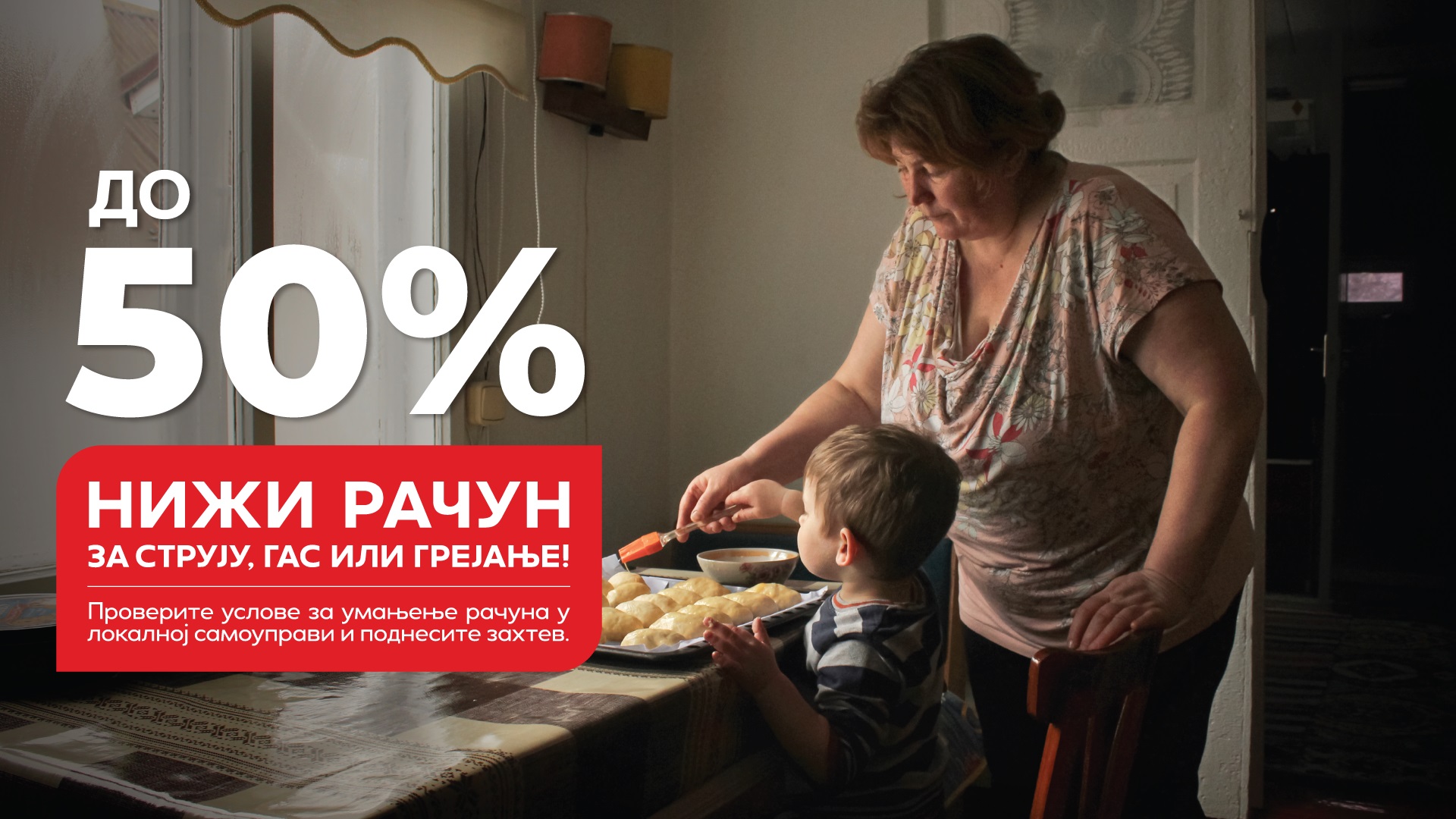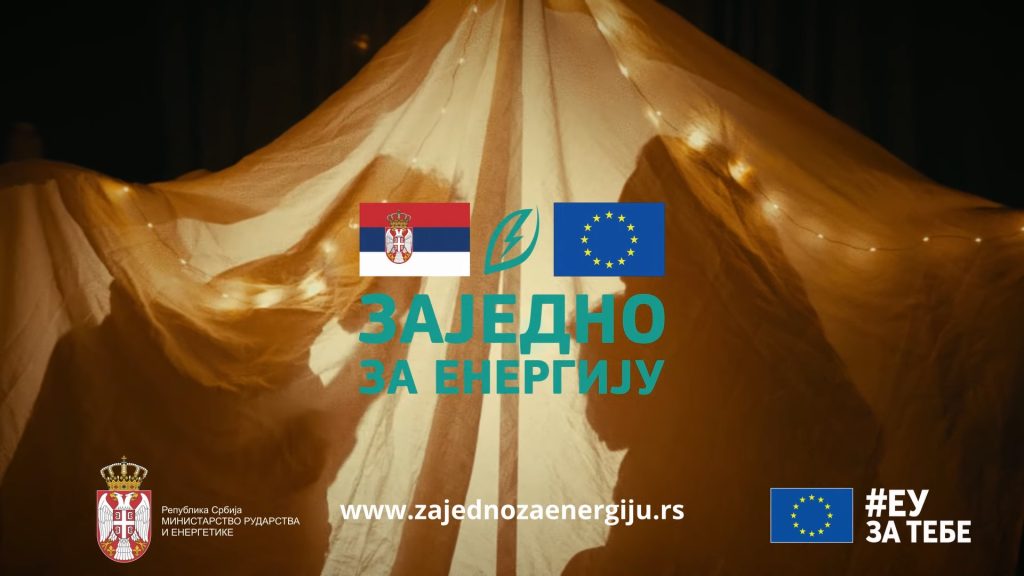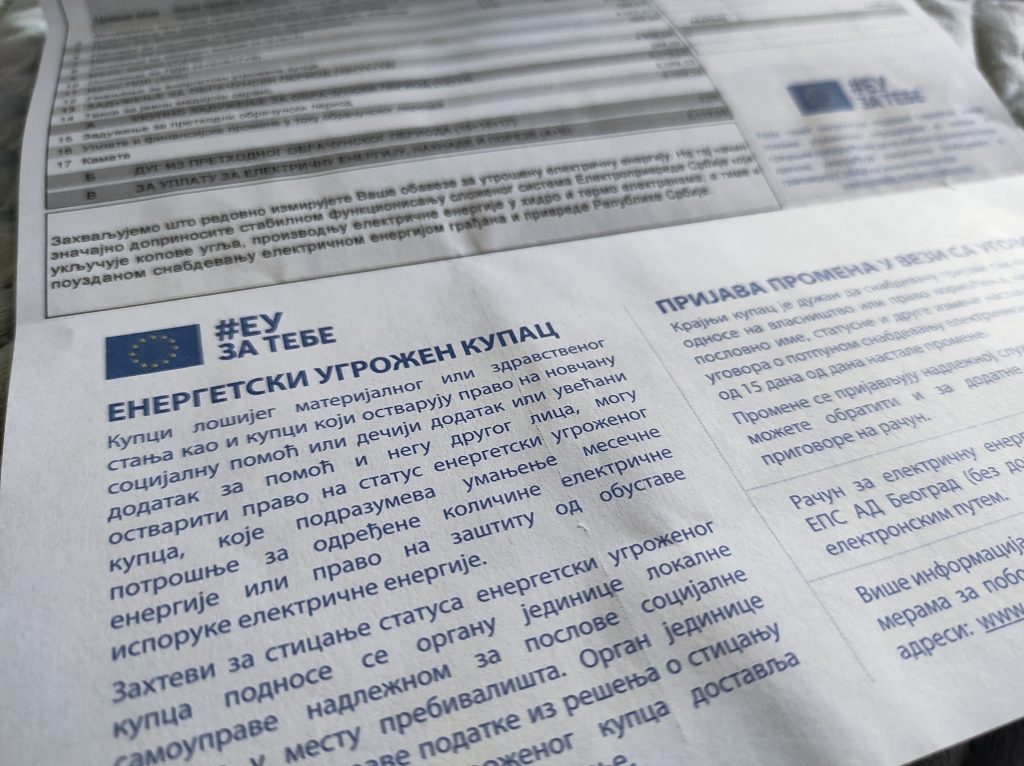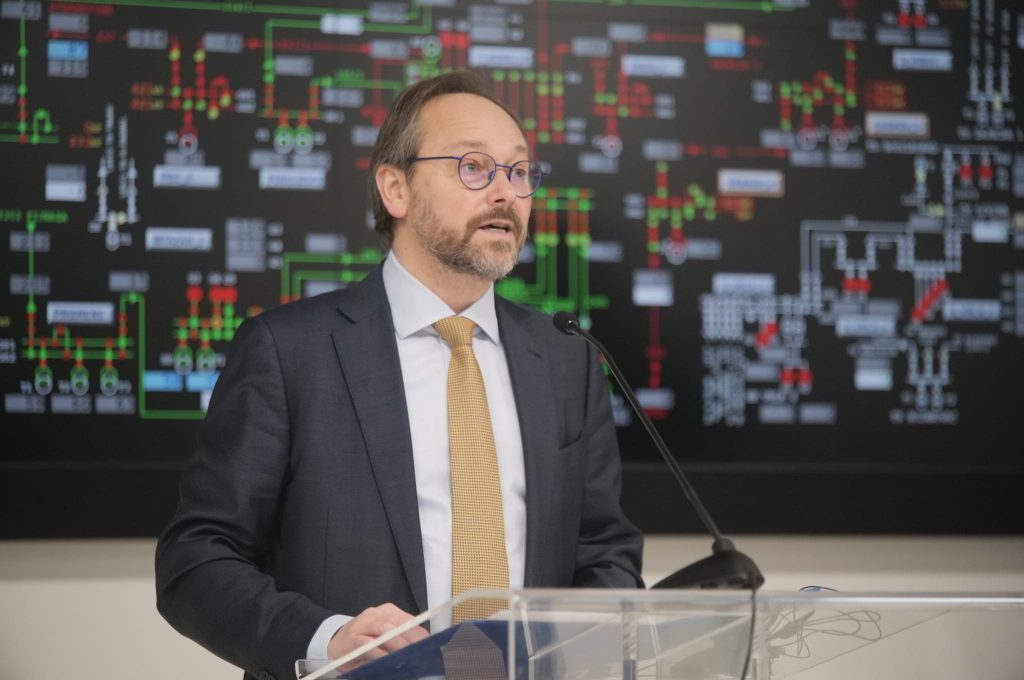Citizens wonder if they can get subsidies and pay reduced energy bills. They want to find out how to exercise their rights and where they can submit an inquiry about the possibilities and a request for a decision.
Serbia and the EU are working together to ensure that all energy-vulnerable households obtain the right to subsidies and overcome the increase in energy prices caused by the energy crisis. A prerequisite is proper provision of information to citizens, and a joint awareness raising campaign for the citizens is yielding results. In the new interactive online form, last month more than 1600 citizens checked the possibility of acquiring the status of an energy vulnerable consumer.
Thanks to the EUR 165 million EU energy support package for Serbia, during 2023 at least the same number of households as in 2022 (68,000) will be protected, and that number will gradually increase to 191,000”, said the EU Ambassador to Serbia Emanuele Giaufret in February, and added that Serbia will simultaneously benefit from the same tranche of EU funds through a new wind farm in Kostolac and the reconstruction of Vlasina Hydropower Plant, among other projects.
All important information for energy-vulnerable households and for small and medium-sized enterprises can be found on the portal zajednozaenergiju.rs, jointly developed by the Government of the Republic of Serbia and the European Union. The Together for Energy campaign reached almost every household in Serbia – with information on the back of electricity bills, billboards, posters in local governments, animations and messages on social networks, TV clips and speeches by officials in TV shows.
The increase in energy prices significantly affects household budgets, so timely assistance to the most vulnerable in this sector is more than needed. According to the information from the Statistical Office in 2022 the average monthly income per household amounted to RSD 78,393, while the expenditure for personal consumption of households was RSD 78,678.
In practice, protected two-member households, with electricity bills approximately RDS 3,770, will pay RSD 1,721.87 less, as well as 50 percent less every month, for example, for district heating. In order for citizens to benefit from this energy price discount, they should apply in their place of residence to the local self-government which decides on the basis of the Decree on energy vulnerable consumers.
Subsidies for vulnerable households to help overcome increased energy bills refer to an already existing mechanism in Serbia, to which the EU additionally contributes, because more and more people are affected by the energy crisis. EU grants will be added to Serbia’s budget to ensure that the most vulnerable families continue to benefit from lower energy prices.
EU grants are added to the budget of the Republic of Serbia to ensure that small and medium-sized enterprises continue to benefit from stable energy prices. Thanks to this initiative, during 2023 at least the same number of SMEs as in 2022 (70,000 enterprises) will benefit from EU support, and this number can be increased until November 2023. In practice, protected SMEs will benefit from price caps. Budget support is intended to maintain the cap on electricity price regardless of fluctuations in the electricity market.
The funds are made available for the implementation of the energy road map of the Government of the Republic of Serbia, which describes what the EU funds should be spent on. An increase in competition in the gas and electricity markets is also foreseen: Separation and certification of all gas and gas storage operators, opening of the gas market and access to third parties to the existing infrastructure, conducting auctions for producers of electricity from renewable energy sources.
As an important part of the roadmap, the plan is to promote energy efficiency and renewable energy sources through a subsidy scheme for households and multi-family residential buildings for implementing energy efficiency measures and subsidizing solar panels, heat pumps, etc. for private houses, small and medium-sized enterprises and public buildings.
EU support to Serbia in the energy sector since 2000 amounted to over EUR 1 billion. There are a number of flagship projects that are either already underway or expected to start soon. The Trans-Balkan Electricity Corridor – a joint project of the German KfW, the EU and the Government of the Republic of Serbia – will connect Serbia with Italy and provide a new, more stable and efficient network with greener energy resources. The new Gas interconnector with Bulgaria will help diversify energy sources for Serbia, making it less dependent on Russian gas. The EU is currently upgrading the energy efficiency of several hospitals in Belgrade, including the largest hospital – Military Medical Academy (VMA). So far, the EU has provided grants for energy efficiency measures in 200 building in Serbia, from kindergartens and schools to other large hospitals and public buildings.
Read more:
https://europa.rs/eu-i-srbija-zajedno-za-energiju/
https://europa.rs/zasto-je-vazna-energetska-efikasnost-zgrada/
https://europa.rs/modernizacija-hitne-pomoci-u-beogradu-uz-podrsku-eu/
Više o projektima i podršci EU sektoru energetike Srbije







